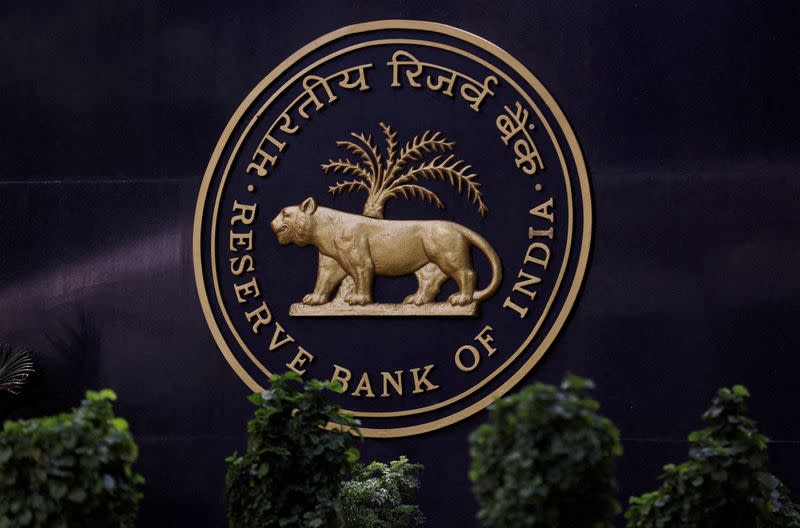India central bank's record dividend to government may reduce fiscal gap

By Swati Bhat and Nikunj Ohri
MUMBAI (Reuters) -The board of India's central bank approved a record surplus transfer of 2.11 trillion rupees ($25.3 billion) to the government for the fiscal year that ended in March, sharply above analysts' and government projections.
The government had budgeted a dividend of 1.02 trillion rupees from the Reserve Bank of India, state-run banks and other financial institutions, interim budget estimates for the fiscal year 2024/25 show.
For FY23, the RBI transferred 874 billion rupees to the government.
"RBI dividend is good for the fiscal position of the government," Finance Secretary T V Somanathan said.
The higher dividend from the RBI will further improve the government’s cash position. It has been buying back bonds to infuse cash into the banking system, but a third consecutive buyback on Tuesday saw little success among investors.
"We will only buy those bonds back which come with yields which we like. We will keep doing things pragmatically to manage our cash," Somanathan said.
India will decide on lowering both fiscal deficit and market borrowing in the full-year budget after the formation of a new government, a source familiar with the matter told Reuters.
A marathon national election is set to conclude on June 1, with counting on June 4. The date for the budget will only be announced after a government is formed.
Upasna Bhardwaj, chief economist at Kotak Mahindra Bank, said the "whopping dividend" was likely to be the result of higher interest rates on domestic and foreign securities, significantly higher gross sales of foreign exchange, and the low impact of the central bank's liquidity operations.
"We expect such a windfall to help fiscal deficit ease by 0.4% in FY25. Scope for lower borrowing being announced in the upcoming budget will now provide significant respite to the bond markets," she added.
India's benchmark 10-year bond yield dropped five basis points to 6.99% after the announcement, its lowest level in nearly a year.
The bank's board reviewed the global and domestic economic scenario, including risks to the outlook, the statement added.
The RBI board also decided to raise the contingency risk buffer (CRB) to 6.5% from 6% previously as the economy remains robust and resilient, it said.
"The higher dividend represents additional fiscal revenue of 0.4% of GDP," Gaura Sen Gupta, an economist with IDFC First Bank, wrote in emailed comments.
"Incorporating potential shortfall in disinvestment receipts and more moderate tax collection growth than budgeted, FY25 fiscal deficit could undershoot budget estimate by 0.2% of GDP" Sen Gupta wrote.
Analysts had expected a surplus transfer in the range of 750 billion rupees to 1.2 trillion rupees.
"This gives the government significant elbow-room to manage any welfare spending and sustain capex spending, even if the disinvestment receipts fall short," said Garima Kapoor, an economist and senior vice president at Elara Capital.
Aditi Nayar, economist at rating agency ICRA, said increasing the funds available for capex would boost the quality of the fiscal deficit. But she said additional spending may be difficult to realise within the eight-or-so months left in the fiscal year after the final budget is presented. ($1 = 83.2692 Indian rupees)
(Reporting by Swati Bhat and Nikunj Ohri, additional reporting by Siddhi Nayak; Editing by Clarence Fernandez, Hugh Lawson and Kevin Liffey)

 Yahoo Finance
Yahoo Finance 